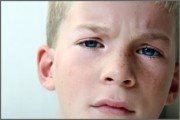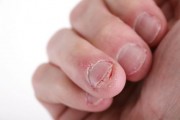Published: October 13, 2011
 Spaceships and robots are being used as themes in a set of computer games to boost children’s memory skills as part of a unique research project which hopes to reduce childhood anxiety and improve academic performance. The researchers have been given a grant from children’s charity Action Medical Research.
Spaceships and robots are being used as themes in a set of computer games to boost children’s memory skills as part of a unique research project which hopes to reduce childhood anxiety and improve academic performance. The researchers have been given a grant from children’s charity Action Medical Research.
Anxiety is common during childhood. Evidence suggests up to one in twenty children and adolescents experience an anxiety disorder.[1] Anxious children can worry excessively about all sorts of things – conversations they’ve had, things they’ve done, upcoming events, their health, how good they are at sport or school work, world events and so on.
Children can worry so much that they feel ill and start avoiding everyday activities, such as going to school or out with friends, or taking up a hobby. They may feel sick, breathless, dizzy or panic, and can complain that their tummy hurts. They can also be tearful, irritable or restless, and find it difficult to concentrate or to sleep.
The two-year research project is being carried out thanks to a grant award of £83,282 from Action Medical Research – the leading UK-wide medical research charity dedicated to helping babies and children. [continue reading…]
Published: October 29, 2008

© iStockphoto
Helping children face their fears may be more productive than focusing on other techniques to help them manage their anxieties, according to research presented at the annual meeting of the American Academy of Child and Adolescent Psychiatry in Chicago. [continue reading…]
Gina Steppes recently featured Vision article suggest that children in the US and other countries are increasingly struggling with anxiety and unhappiness.
In the year 2000—even before terrorism hit so close to home for Americans on September 11, 2001, and before the United States went to war with Iraq—an interesting study appeared in the American Psychological Association’s Journal of Personality and Social Psychology. In her report, social psychologist Jean Twenge observed that anxiety levels in American children had increased dramatically since the first effective scale for measuring childhood anxiety was published in 1956.
The increases were so large and linear, Twenge explained, that by the 1980s normal children scored higher on the anxiety scale than did children in the 1950s who were psychiatric patients. The culprits? According to Twenge, disconnected relationships and looming environmental threats were the underlying factors. In particular she notes that “changes in the divorce rate, the birth rate, and the crime rate are all highly correlated with children’s anxiety.” In contrast, she discovered that “surprisingly, economic indices had very little independent effect on anxiety. Apparently, children are less concerned with whether their family has enough money than whether it is threatened by violence or dissolution.”
If modern young Americans are indeed feeling the strain, they are certainly not alone in the world. According to a March 2008 article in the online Independent, Britain may actually be the “unhappiest place on earth” for children. Education editor Richard Garner notes the “welter of evidence highlighting the fragile states of mind of many of the country’s seven million primary and secondary school pupils,” while reporting that British teachers had called for an independent Royal Commission to discover the reasons behind the widespread anxiety and unhappiness among the nation’s children.
Link to read article
Source: Vision
 Spaceships and robots are being used as themes in a set of computer games to boost children’s memory skills as part of a unique research project which hopes to reduce childhood anxiety and improve academic performance. The researchers have been given a grant from children’s charity Action Medical Research.
Spaceships and robots are being used as themes in a set of computer games to boost children’s memory skills as part of a unique research project which hopes to reduce childhood anxiety and improve academic performance. The researchers have been given a grant from children’s charity Action Medical Research.
